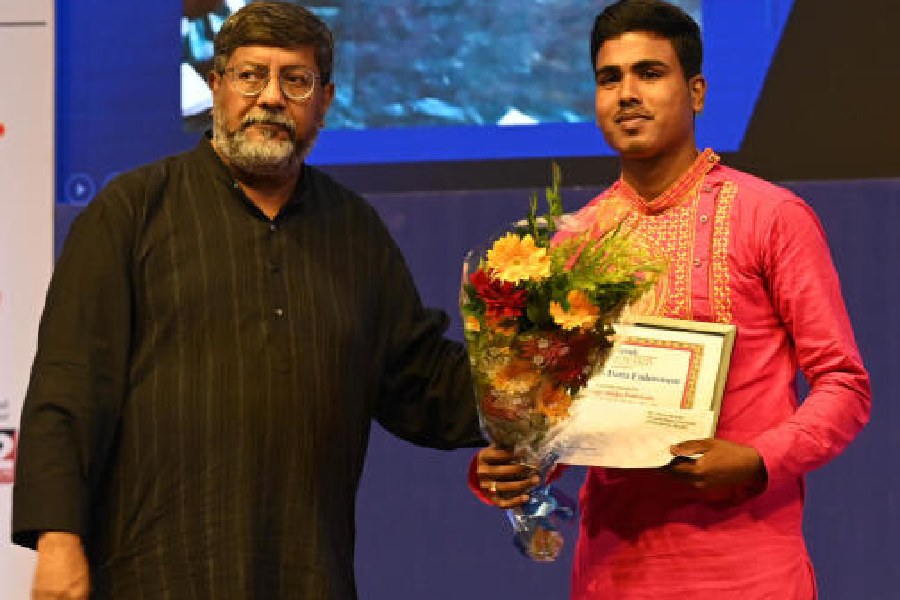He is a mason who no longer shapes buildings but runs a school.
Forced by poverty, this “Deulbarir Rajmistry” left his home in Deulbari village in Kultali, South 24-Parganas, after higher secondary in 2017 to work as a mason in Calcutta for ₹270 a day.
He was forced to return to his village during the Covid-induced lockdown when he saw children wandering about with no interest or inclination to study.
Pulak Mondal, 26, approached two of his cousins, who were in college, to help him teach the children.
He started his journey and school with 19 children, under a tarpaulin sheet scaffolded by bamboo poles.
The school, Swamiji Shishu Pathshala, on Saturday, received The Somak Datta Endowment at IIHM presents The Telegraph School Awards for Excellence 2024, 29th edition, in association with The Bhawanipur Education Society College and Exide.
While many were trying to save money during the Covid pandemic, this young man parted with his savings, not for himself but for his students.
From 2017 to the beginning of 2020, he worked as a mason in Andhra Pradesh, Bengaluru and Calcutta. This helped him have some savings.
“In May 2020, (Cyclone) Amphan swept away the homes of many of our villagers. With my savings and with help from a few benevolent people I started providing tarpaulin sheets, followed by school stationery like exercise books and pencils for the children,” he said.
But despite giving them stationery the children showed no interest in books, Mondal said.
“A few months later I approached my sisters for help and started the school,” he said.
The informal school now has 54 children who come every morning from 6.30am to 8.30am, before going to a government school.
Their parents work in the fields or as cobblers or are dependent on the river for a living.
“We have a fee of ₹1 a day but not all can pay and we let it be. These children neither get any support at home nor can their parents send them for tuition,” said Mondal.
The school provides the children with breakfast, occasional hot meals and new clothes thrice a year.
His efforts are supported by two organisations that also help him with the salary of two of the three teachers.
The children are from Class I to Class IV. “We cannot give these children a lot but we give from what we have,” said Mondal.
In 2021, after a storm blew away the roof of the school, Mondal sold his e-rickshaw to make a proper room for the children with a corrugated sheet roof.
“The walls are not of concrete but of bamboo shavings. The children have to protect their books from getting wet during the rains,” Mondal said.
“Financial constraints make it difficult to meet all the needs,” he said.
Since he now runs the school, there are times when he regrets quitting his own studies after higher secondary.
“When I am invited to programmes courtesy of my school, I feel it would have been better if I had completed college. But I was never good in studies and the circumstances were difficult,” he said.











